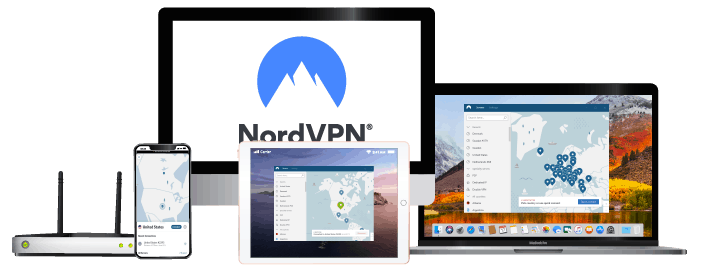How to Access Sci-Hub Everywhere?
Accessing Sci-Hub anywhere isn’t as daunting as it might sound. For those of us who’re unfamiliar, Sci-Hub is a treasure trove for research enthusiasts, offering millions of academic papers free of charge. But due to copyright issues, it’s been made inaccessible in several countries. How do we circumvent this? The answer lies in Virtual Private Networks (VPNs).
Now, there’s a wide array of VPNs available on the market – some better than others. But when accessing Sci-Hub from restricted areas, I’ve found that ExpressVPN, NordVPN, and Surfshark top the list. These VPNs are well-known for their ability to bypass geographical restrictions effectively.
What makes these three stand out? They offer a combination of speed, security features and ease-of-use that’s hard to beat. So whether you’re new to using VPNs or an experienced user looking to access Sci-Hub from anywhere in the world, these options have got you covered.
ExpressVPN
Overall score: 9.8
- 3,200 servers across 105 countries
- Works with streaming platforms
- AES 256-bit encryption
- Supports private protocol, Lightway
- Money-back guarantee
30-day money-back guarantee
NordVPN
Overall score: 9.6
- 8,700+ servers available in 129 countries
- Connect up to 10 devices simultaneously
- Great security features
- Verified no-logs policy
- Unblocks streaming platforms
30-day money-back guarantee
Surfshark
Overall score: 9.5
- 4,500+ servers in 100+ countries
- Allows unlimited simultaneous connections
- Integrates stealth mode
- Multihop feature available
- Webcam protection from unauthorized apps
30-day money-back guarantee
Proton VPN
Overall score: 9.4
- 17,250+ servers in 125 countries
- Free version available
- Strong security features
- Reliable no-logs policy
- Allows Perfect Forward Secrecy
30-Day Money-Back Guarantee
CyberGhost
Overall score: 9
- 9,300+ reliable servers in 100 countries
- 45-day money-back guarantee
- Strict no-log policy
- Tough security features
45-Day Money-Back Guarantee
Understanding the Importance of Sci-Hub
I can’t emphasize enough how critical Sci-Hub has become in the world of academic research. It’s not just another website; it’s a cornerstone for countless researchers, academics, and students worldwide.
Sci-Hub, often referred to as the “Pirate Bay of Science,” is a game-changer. It takes down barriers to information access by bypassing paywalls on scholarly literature. Imagine having over 85 million (and counting) scientific papers at your fingertips, free for everyone? That’s what Sci-Hub offers.
Now, you might be asking why something like this is essential. Well, let me lay out some reasons:
- Leveling the playing field: Not everyone has hefty subscription fees for scientific journals lying around. With Sci-Hub, they don’t need to.
- Promoting open knowledge: Knowledge shouldn’t be locked away behind paywalls. It should be accessible to anyone interested or invested in it.
- Driving innovation: When more people have access to information, there are more minds at work that could lead to groundbreaking discoveries.
However, not all roses here are without thorns. Legal issues and site blockages are common hurdles that users encounter when trying to access Sci-Hub.
That’s where VPNs like ExpressVPN, NordVPN and Surfshark come into play. They not only provide an extra layer of security but also sidestep geo-restrictions effortlessly – making them ideal tools for accessing resources like Sci-Hub from anywhere in the world!
But remember: While I’m discussing these options from a neutral standpoint (as I understand their relevance), using these services does come with its own ethical considerations you’d need to take into account.
In summary: The importance of Sci-Hub stretches far beyond being just a repository of articles—it’s an enabler for global knowledge sharing and progress!
Navigating Sci-Hub’s Accessibility Challenges
Getting on Sci-Hub can sometimes feel like a puzzle. But don’t sweat it, I’ve got some insights to help you navigate the maze of accessibility challenges that come with using this online resource. The first step in accessing Sci-Hub from any location is understanding the obstacles that might stand in your way.
Let’s talk about geographical restrictions first. Some regions have strict internet censorship rules, which may block access to sites like Sci-Hub. That’s where virtual private networks (VPNs) come into play. ExpressVPN, NordVPN, and Surfshark are among the top VPNs that I recommend for bypassing these barriers.
- ExpressVPN offers servers in 94 countries, ensuring reliable connectivity no matter where you’re located.
- With over 5,000 servers worldwide, NordVPN gives you plenty of options to connect securely.
- If budget is a concern, then consider Surfshark. It provides excellent service at a wallet-friendly price.
Creating a secure link between your device and the internet, VPNs mask your IP address making it seem as though you’re browsing from a different location. This allows you to slip past regional restrictions and access blocked content – including Sci-Hub.
Now let’s discuss another issue – mirror sites or alternative domains for Sci-Hub keep changing due to legal pressures. To stay updated with these ever-changing URLs, follow forums related to open-source academic resources or join relevant social media groups.
One point worth noting: always ensure your device has an updated antivirus software before accessing such websites; they can occasionally host malware or intrusive ads.
Remember folks – while my aim is to guide you through accessing information freely available on platforms like Sci-Hub; respect for intellectual property rights should still be upheld whenever possible. Using these resources ethically aligns us more closely with their original purpose: democratizing knowledge and fostering curiosity-driven research around the globe.
Conclusion: Harnessing Sci-Hub as a Global Research Tool
I’ve been diving deep into the world of Sci-Hub, exploring its potential as an accessible global research tool. It’s clear that it can play an invaluable role in breaking down barriers to information access.
Let’s make one thing clear: I’m not endorsing any illegal activities. Rather, I believe in the power of knowledge and its ability to transform lives when made available universally. That said, accessing Sci-Hub from anywhere is possible with the right tools at your disposal. Virtual Private Networks (VPNs) like ExpressVPN, NordVPN, and SurfShark are few such examples.
These VPNs help mask your IP address and encrypt your internet connection. This means they help you bypass geographical restrictions and provide a safe environment for browsing potentially restricted content. If there’s one thing I’ve learned about using VPNs, it’s that they’re user-friendly and quite effective.
- ExpressVPN: Known for its high-speed connectivity and robust security features.
- NordVPN: Commended for its large server network and excellent privacy policies.
- Surfshark: Appreciated for its budget-friendly pricing structure and unlimited device support.
In essence, these tools act as gateways to unchartered territories in the realm of academic research. They empower researchers globally by providing them with unrestricted access to scholarly articles published on various platforms.
But remember – while this gives us unprecedented access to resources we wouldn’t normally have at our fingertips – we must use this power responsibly. Always respect copyright laws and the hard work put into producing these papers.
So there you have it! My take on how to harness Sci-Hub as a global research tool using popular VPN services like ExpressVPN, NordVPN, or SurfShark. As always though – do your own due diligence before making any decisions
Join the TechRobot Newsletter
Actionable tips on online security, the best VPNs, unblocking guides, and special offers — straight to your inbox.









